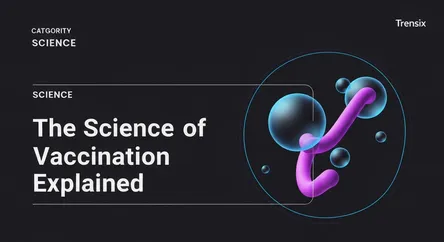Science
The Science of Vaccination Explained

Discover how vaccination works, why it's a constant topic of discussion, and its profound impact on personal and public health worldwide.
What is it?
Vaccination is a method of introducing a vaccine into the body to produce protection from a specific disease. Vaccines contain a harmless version or component of a germ (like a weakened virus or a specific protein). This agent stimulates the body's immune system to recognize the germ as a threat and produce antibodies to fight it. If the person is ever exposed to the real germ in the future, their immune system is already prepared to destroy it quickly, preventing illness. It's a way to gain immunity without having to get sick first.
Why is it trending?
Vaccination is always a relevant topic, but it frequently trends due to global health events and scientific advancements. The rapid development of mRNA vaccines for COVID-19 brought vaccine technology to the forefront of public consciousness. Ongoing conversations about vaccine mandates, misinformation, and global equity in vaccine distribution keep it in the news. Furthermore, cutting-edge research into therapeutic vaccines for cancer and preventative ones for diseases like RSV and HIV ensures that vaccination remains a dynamic and widely discussed field in modern medicine.
How does it affect people?
Vaccination has a profound effect on both individual and community health. For individuals, it significantly reduces the risk of contracting and suffering from severe, sometimes deadly, infectious diseases. On a societal level, high vaccination rates create "herd immunity," which helps protect the most vulnerable populations who cannot be vaccinated, such as infants and people with compromised immune systems. By preventing outbreaks, vaccines reduce the strain on healthcare systems, support global travel and commerce, and are credited with saving millions of lives each year, making them a cornerstone of public health.